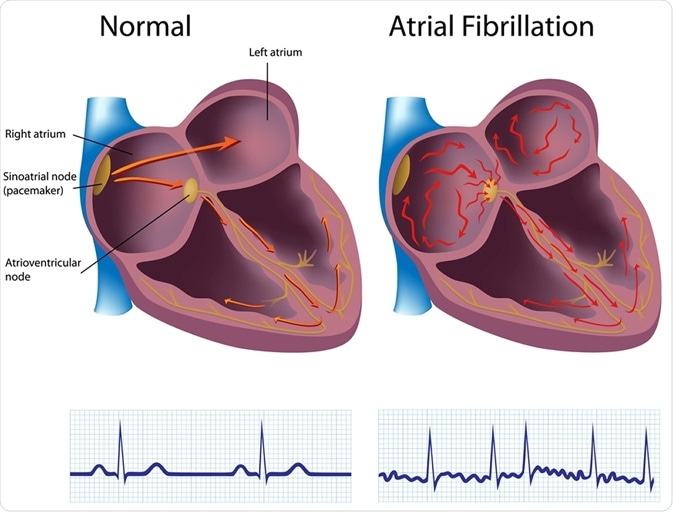Diagnosing & Treating Atrial Fibrillation
Symptoms
It is possible to have atrial fibrillation with no symptoms. Those who do have symptoms may experience heart palpitations, weakness, fatigue, shortness of breath and a general inability to carry out tasks that they were previously able to do. Atrial fibrillation might also be detected during a physical exam.
Treatment
Atrial fibrillation is not necessarily a permanent condition, and one of the aims of treatment may be to eliminate it altogether. Without treatment, it can raise the risk of a stroke or heart failure. Treatment may simply require cutting back on caffeine or stress, or it might require medication or various procedures. In some cases of atrial fibrillation, a doctor may determine that no treatment is needed at the time.
Risk Factors and Prevention
Your risk of atrial fibrillation gets higher with age, alcohol use, a sedentary lifestyle and obesity. While you cannot prevent getting any older, you can cut back on your alcohol consumption, exercise more and try to maintain a healthy weight. Practicing healthy habits has additional benefits beyond treating or preventing atrial fibrillation. It can also help keep you in better overall health as you get older.
Atrial fibrillation in Miami should be taken seriously, but you should not be alarmed if you experience the symptoms associated with it. A doctor can determine whether the cause is atrial fibrillation or something else and can prescribe a course of treatment.



Comments
Post a Comment